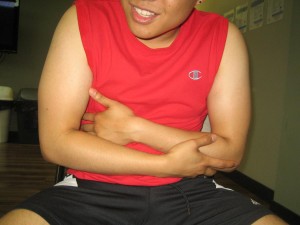Gastritis involves the inflammation or swelling of the protective stomach lining. An acute case involves abrupt, significant inflammation while a chronic case is characterized by long-term inflammation that can last for years if not treated.
What are the causes?
Once the stomach lining is weakened, the digestive juices can damage it and trigger inflammation which leads to gastritis. A thin or damaged stomach lining heightens the risk for the condition. In addition, certain ailments and activities also increases the risk.

It is important to note that a digestive bacterial infection can trigger gastritis. The most prevalent is an infection with the Helicobacter pylori which is a bacterium that triggers infection of the lining of the stomach. It is typically passed from one individual to another, but also transmitted via contaminated water or food.
Other potential risk factors include:
- Cocaine use
- Excessive consumption of alcohol
- Regular use of non-steroidal anti-inflammatory drugs (NSAIDs) such as aspirin and ibuprofen
- Age since the stomach lining thins out over time
What are the indications?
Gastritis does not cause any evident symptoms but the usual ones that arise include:
- Indigestion
- Nausea and vomiting
- Sensation of fullness in the upper abdomen especially after eating
Management
The treatment is based on the exact cause of the condition. If gastritis is due to NSAIDs or other medications, these drugs must be avoided to provide relief to the symptoms.
If caused by H. pylori, the treatment involves antibiotics that eliminate the bacteria. Aside from antibiotics, other medications are given to manage gastritis such as:
- Proton pump inhibitors – these medications work by blocking the cells that produce stomach acid. The commonly used include omeprazole, esomeprazole and lansoprazole.
- Antacids – these might be recommended for rapid relief of pain. They work by neutralizing the stomach acid.
- Acid-reducing medications – these medications reduce the amount of stomach acid produced to relieve the pain and allow the stomach lining to heal.
